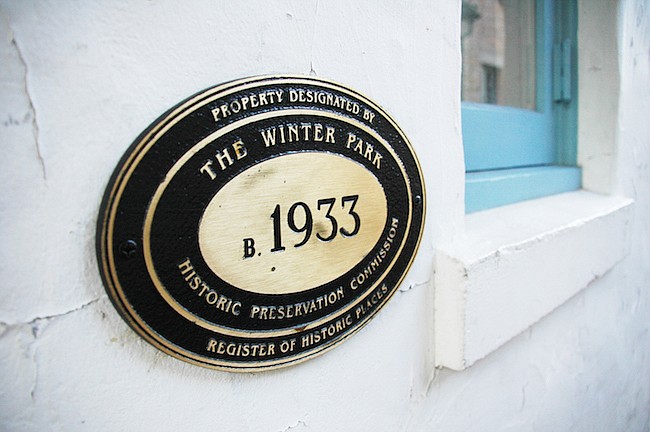- December 19, 2025
-
-
Loading

Loading

Winter Park is back at square one when it comes to historic preservation.
The Winter Park City Commission voted to amend its historic preservation ordinance during its meeting last Monday – undoing the changes voted through by the Commission last December meant to better protect historic homes in the 134-year-old city.
Changes from last December — enacted after a new homeowner attempted to demolish a home built by one of the city’s founders — made the process easier for a neighborhood with historic homes to be named a historic district. That title offers a barrier of protection to historic buildings. Any alterations, additions or demolition involving historic resources within the district must go before the Historic Preservation Board for review, leaving some residents believing their property rights could be infringed upon.
In order to form a historic district, the city’s previous ordinance required two-thirds of the residents within the proposed district to vote in favor. That percentage requirement was changed in December to 50 percent plus one — a simple majority vote.
Changes passed last week included restoring the voting threshold needed to designate a historic district back to a two-thirds vote. Of cities in Florida with historic preservation ordinances, Winter Park reverts back to being the most difficult city to create a historic district.
The changes were passed by a vote of 3-2, with Mayor Steve Leary and Commissioners Sarah Sprinkel and Peter Weldon voting in support.
The three agreed that it was in violation of residents’ property rights to allow a simple majority of neighbors to tell other neighbors what they could and could not do with their homes. Other changes made to the ordinance on Monday included language that emphasized that historic preservation is “voluntary.”
“Pitting neighbor against neighbor is the most frustrating thing about this for me,” Leary said. “We all support historic preservation, the city is committed to it, residents are committed to it – we just disagree on how to go about implementing it, that’s all.”
Commissioners Carolyn Cooper and Greg Seidel, who voted to change the threshold in December along with former Commissioner Tom McMacken, voted against the motion.
“I am very much opposed to reducing back to the original level,” Cooper said.
“I think as a city of culture and heritage – which I understand may even be now up for discussion – I find it tragic that we are not giving the proper attention and making it possible for neighborhoods that choose to be by a majority vote a historic district.”
Cooper added that the city hasn’t followed through in its commitment to history and heritage, and hasn’t found ways to incentivize historic homeowners to put their homes on the historic registry to keep them better protected.
“If we hope to maintain our desirability and our distinction from other communities, I would like us to see us continue to celebrate our heritage and celebrate our historic assets,” Cooper said. “Six months ago we passed an ordinance that said we were going to recommend incentives and yet not only do we not have a date certain by which those recommendations will come back, it’s been six months and we don’t have anything.”
The city will continue to shape the historic preservation ordinance and look at new incentives.
“This isn’t perfect,” Leary said. “I hope it gets a little closer to perfect.”